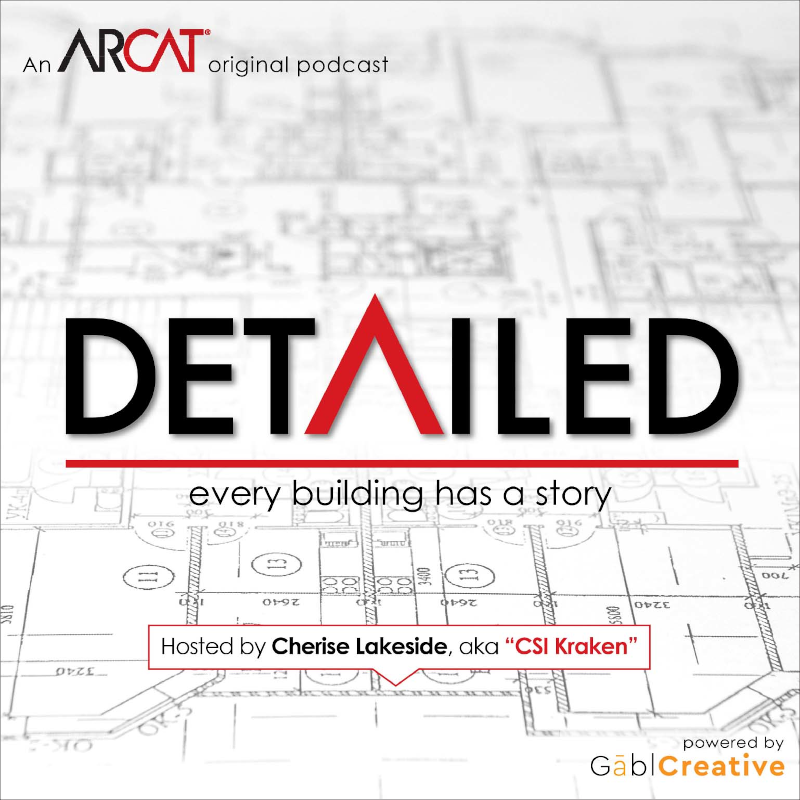|
Contributed by Sheldon Wolfe In the last few years, it has been proposed that owners might benefit from hiring specifiers directly; it has even been suggested that specifiers might help owners choose architects. Specific aspects of these ideas, and of related issues, were addressed by member presentations at the Construction Specifications Institute's (CSI) annual convention over the last handful of years. In 2014, at the convention in Baltimore, several Institute directors and interested members met to discuss a report that had been submitted to the Institute board by Ujjval Vyas, PhD, of the Alberti Group. This report, titled "The Risk Management Value of Specifications," was prepared at the request of CSI. The report's Executive Summary noted conditions that would surprise few specifiers: Specification software is beginning to replace activities traditionally done by a specifier; contractors are becoming more involved in specifications, especially in design-build projects; and specifiers suffer from the Rodney Dangerfield syndrome - their value often is not appreciated by their employers, with commensurate effect on stature, compensation, and opportunity for advancement. What will happen to specifiers in the next decade? Will they be replaced by software? Will they shed the grunt work of word processing and become even more valuable, devoting their time to product research, coordination of documents, and adding intelligence to the building model? Or will they simply fade away? Just as has happened with drawing - we moved from linen to vellum to digital images, and we moved from drafting to CAD to building modeling, yet all of these options remain in use - all of the above possibilities for specifiers will exist in some degree, and it's possible someone will continue using a typewriter to write specifications. But which of these possibilities, or what combination of them, will be most common? What I see suggests the answer won't be to the liking of most specifiers. Specifying software will get better, it will extract more information from the building model, it will get easier to use, it will further automate editing of specifications, and it will be seen as a replacement for specifiers. Contractors will continue to increase their importance during construction, and designers will continue to lose credibility with clients. Will specifiers soon find themselves in the unemployment line? What happens, both to specifiers and to specifying as a career, will be affected by what specifiers do to influence the discussion. If they do nothing, they will be further marginalized, and though they might not be laid off, they may not be replaced when they leave. Based on what I've seen, that is the likely course. Fifty or so years ago, it wasn't difficult to see what specifiers could contribute; it also wasn’t difficult to see the value in CSI membership. At that time, commercial guide specifications didn't exist, so firms needed people who could start with a blank sheet of paper and write a specification. Manufacturers' literature was often inconsistent, incomplete, hard to get, and hard to understand.
For centuries, the architect's primary tool for conveying information was the drawing. More recently, specifications were added, but it may not be long before the building model, incorporating both graphic and verbal information, becomes the single tool for communicating with the project team. I frequently find myself blaming the educational system, and I'll do it again. By ignoring these communication tools, and by focusing on planning and pretty pictures, architecture schools not only fail to teach students what contract documents are and how they should be used; they also instill a disregard, even a disdain, for them. As architects move on in their careers, that attitude stays with them, and when forced to deal with anything other than a drawing, they don't know where to start. All of which gives rise to a common complaint of specifiers: "No one has the time to read specifications - until they're in trouble, when they run to the specifier and ask if there's something there to cover their exposed derrières." How concerned are specifiers? How many of them will accept the challenge and work to improve and promote their value? How many will just muddle on, squinting at their monitors until their perceived value no longer justifies their existence? Are specifiers content to let others decide their futures? Or will they take action to determine their own fates? A few - Marc Chavez, Beth Stroshane, David Stutzman, John Guill, Liz O'Sullivan, Cherise Lakeside, and I, as well as others - have expressed their thoughts by blog and in convention presentations, but there has been little response. After years of increased discussion of the business and the future of specifications, which restored the excitement I experienced at my first convention, we had but one such presentation in 2015. Specifiers, do you care? Are you interested in what happens to your profession? Blogging is fine, but the convention provides a place where we can meet face-to-face, throw out ideas, and hash them out. And yes, there will be disagreement! (Editors Note: If you're interested in seeing various angles of the future of specifications this year in Providence at CONSTRUCT (CSI's annual meeting and affiliated trade show), please look into any of the following presentations: Beth Stroshane's 'Specifying Target Value Delivery' on Wed, September 13th from 4-5:30 PM Jeffrey Pilus' 'Building Information Modeling: Specifications, Software Applications, & Integrated Project Delivery' on Wed, September 13th from 1:10-2:25 PM Paul Doherty's 'Game Changer Session: Specifications in the Age of Smart Cities - How Specs Are Changing the World' on Friday, September 15th from 10-11 AM.)
0 Comments
Leave a Reply. |
AboutLet's Fix Construction is an avenue to offer creative solutions, separate myths from facts and erase misconceptions about the architecture, engineering and construction (AEC) industry. Check out Cherise's latest podcast
Get blog post notifications hereArchives
March 2022
Categories
All
|



 RSS Feed
RSS Feed
